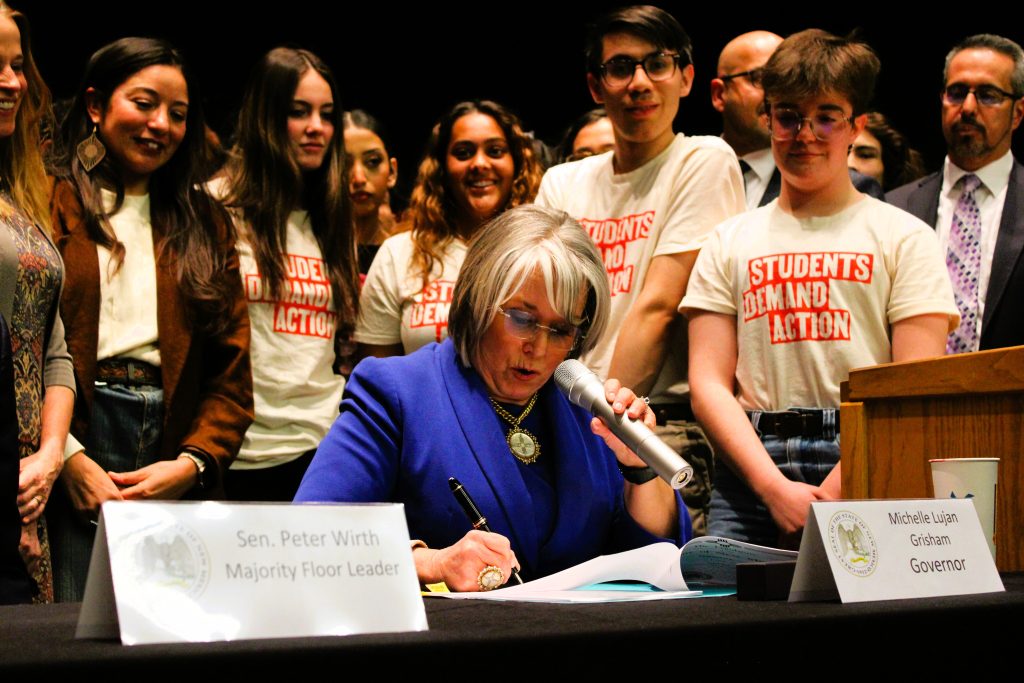A lawyer representing a group of businesses looking for compensation from the state after being ordered to shut down amid the COVID-19 pandemic, filed on Tuesday a response to a brief from the New Mexico Attorney General’s Office, filed earlier this month.
The brief, filed by Albuquerque-based attorney Blair Dunn, is just one piece of a pending New Mexico Supreme Court Case filed by state Attorney General Hector Balderas on behalf of the state. The question facing the high court is whether businesses that were forced to close under emergency public health orders are due compensation by the state for lost business.
Related: NM argues against compensating businesses impacted by emergency public health orders
Balderas asked the state Supreme Court to rule on the issue as a way to streamline more-than-a-dozen pending lawsuits filed by various business owners against the state in lower courts.
Dunn represents the businesses in those state district court cases and argued in his filing on Tuesday that those cases need to play out before the high court makes a decision. Dunn also argued that even if the issue is in the high court’s purview, there are statutes that back up his client’s claims that they are due compensation from the state.
Gov. Michelle Lujan Grisham’s office and the state Supreme Court have been dancing around the issue of eminent domain since earlier this year when the high court considered whether the state’s emergency public health orders were constitutional. Lujan Grisham’s attorney urged justices to rule on the matter in the name of preserving judicial resources since there was already a growing list of cases against the state.
On Dec. 7, the state filed a brief arguing that businesses that were ordered to close as a matter of public health were not due compensation. Further, the state argued, a compensation provision in the state’s Public Health Emergency Response Act (PHERA) would only apply to medical companies that might be taken over by the state.
PHERA, which was passed shortly after a 2001 nationwide anthrax scare, among other things, gives the New Mexico Department of Public Health the power to shut down businesses during a public health emergency. The act also specifies that the state is required to compensate owners of “health care supplies, a health facility or any other property that is lawfully taken or appropriated by the secretary of health, the secretary of public safety or the director for temporary or permanent use during a public health emergency.”
The state argued that the legal term ejusdem generis applies to the “any other property” part of the act and that the compensation provision only applies to medical companies. Ejusdem generis is a Latin term that means “of the same kind.”
In his answer, Dunn argued that narrow reading of “any other property” would prohibit the state from using other resources in the name of public safety.
“For example, it may, even now, become necessary for the government to seize a cold storage facility used for meat packing to store the vaccine and refrigerated trucks to transport the vaccine to places where it is needed in New Mexico,” Dunn wrote. “Clearly if the Legislature intended that these types of property/businesses – which are not at all health care or health supply facilities – to be subject to the broad power of condemnation for the public good of combating the crisis, the Legislature intended that such a business was one of the ‘any other business[es]’ that should be indemnified for that seizure.”
Dunn also argued that the issue should not be in front of the state Supreme Court until lower court judges are able to make their determinations. He wrote that in typical eminent domain cases there is a level of fact finding that has not yet occurred in the 14 cases he has filed against the state.
“Each of these businesses closed or damaged here, allegedly on the basis of science, presents a different stick by which to measure the duration of the limitation to see if it was unduly long,” Dunn wrote. “Moreover, each of these businesses closed or damaged before the Court, allegedly on the basis of science, presents a different stick by which to measure whether the conduct of limiting or closing their businesses was unreasonable, arbitrary or capricious.”
The state has until Jan. 6 to file a response to Dunn’s answer and the state Supreme Court is scheduled to hear oral arguments on Jan. 13.























